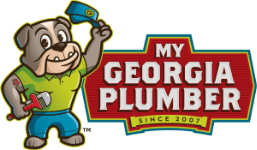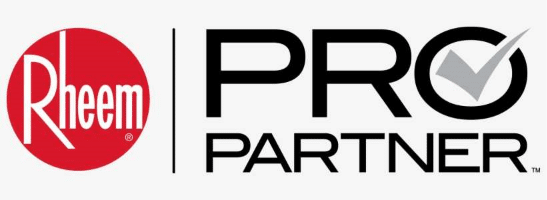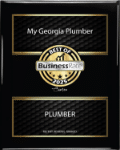Residential Gas Line Repair & Installation in Smyrna, GA: What Homeowners Need to Know
Gas lines are essential for providing energy to home appliances like stoves, water heaters, and fireplaces. However, dealing with gas line repair or installation requires the expertise of a licensed professional. At My Georgia Plumber, we specialize in safe and reliable residential gas line services in Smyrna, GA. Our team is trained to handle everything from small repairs to full installations, ensuring your home’s gas system operates efficiently and safely.
Understanding Residential Gas Lines
Residential gas lines connect your home to the municipal gas supply or, in some cases, a private propane tank. These pipes deliver natural gas or propane to appliances such as:
- Stoves and Ovens
- Water Heaters
- Furnaces
- Fireplaces
- Outdoor Grills and Fire Pits
Gas lines are made of durable materials, often metal or plastic, designed to safely carry gas under pressure. However, even the best materials can degrade over time, and external factors like soil movement, corrosion, or accidental damage during renovations can cause wear or leaks.
Common Gas Line Issues
Gas lines are generally reliable, but certain issues can develop, especially in older homes. Some of the most common gas line problems include:
- Corrosion and Rust: Over time, gas lines, especially metal ones, can corrode due to moisture or chemical reactions in the soil, leading to leaks.
- Leaks at Connections: Fittings and joints in gas lines can sometimes become loose or worn, leading to minor leaks.
- Damaged Pipes: Physical damage from construction or landscaping work can lead to breaks or cracks in the gas line.
- Aging Infrastructure: Like all home systems, gas lines have a finite lifespan. As they age, the materials weaken and may need replacing or upgrading.
Signs You May Need Gas Line Repair
Detecting gas line issues early can prevent hazardous situations. Here are some signs to watch for:
- Smell of Gas: A sulfur or “rotten egg” smell is added to natural gas for easy detection. If you smell this odor, it could indicate a leak.
- Hissing or Whistling Sounds: A sound near the gas line may indicate escaping gas, especially near joints or fittings.
- Dead Vegetation: Patches of dead or discolored plants or grass near outdoor gas lines may indicate an underground leak.
- Difficulty with Gas Appliances: If your appliances are slow to ignite or have irregular flames, it may indicate an issue with gas supply.
- Unexpectedly High Gas Bills: A sudden increase in gas bills without a clear cause could mean a leak in the system.

Gas Line Safety Tips for Homeowners
Gas is a highly efficient energy source, but it’s also combustible, making safety essential for every homeowner. Here are key safety tips:
- Schedule Regular Inspections: Gas line inspections every 1-2 years help identify and address potential issues before they become dangerous. Older homes, in particular, may benefit from more frequent checks.
- Be Cautious with DIY Projects: If you’re doing any landscaping, construction, or home improvement projects, be aware of where gas lines are located. Hitting a gas line can cause serious damage and is a safety hazard.
- Install Carbon Monoxide Detectors: Although natural gas itself isn’t toxic, appliances that burn it can produce carbon monoxide. Having detectors near gas appliances and sleeping areas can alert you to dangerous conditions.
- Maintain Appliances: Keep gas appliances in good working order with regular maintenance. Clogged burners, damaged connections, or other issues can increase the risk of gas leaks.
FAQs About Gas Line Installation and Repair in Smyrna, GA
A licensed and insured plumber or contractor with experience in gas line installations. Check for local reviews, verifying licenses, and confirming that they handle necessary permits can ensure you select a qualified professional.
It depends on the cause of the damage. Homeowners insurance may cover repairs if the damage is due to unforeseen incidents, like a natural disaster. However, wear and tear, poor installation, or maintenance-related damage may not be covered.
No, gas line work is best left to licensed professionals. Gas line installation and repair require specific knowledge and skills to ensure safety, as improper handling can lead to leaks or dangerous situations. Professional installers follow strict safety guidelines and local codes to minimize risks.
In most areas, a permit is required for gas line installation to ensure it meets safety and building code standards. Your licensed installer can typically handle permits, inspections, and compliance with local regulations.
Yes, you can switch an electric stove to a gas stove, but the process requires several steps and considerations:
- Check for a gas line
- Call a licensed gas plumber
- Purchase electrical outlet for ignition (again, your plumber can advise)
- Review ventilation requirements
- Select a compatible gas stove
- Safety, safety, safety!
Why Choose Professional Installation and Repair for Gas Lines
While it may be tempting to attempt DIY gas line work, gas lines are complex and potentially dangerous if not handled properly. Licensed professionals follow safety protocols and building codes to ensure installations and repairs are both safe and effective. Proper gas line maintenance, installation, and repair provide peace of mind and long-term reliability for your home.
Call My Georgia Plumber today for safe, professional, gas line installation at (770) 268-2331 or schedule online!










